
How Michelle Obama uses algorithmic knowledge
While Michelle Obama is no longer the United States' First Lady, her on-message social media presence still has a political impact on the American people. This article will discuss Michelle Obama's use of algorithmic knowledge and political message in maintaining her political influence.
Michelle Obama is a public figure known by many people around the world. Married to the 44th president of the United States, she was the first African-American First Lady from 2009 to 2017. Four years later, she is still widely popular and involved in politics. Among other things, she uses her social media accounts to spread political messages, makes her own podcast, and wrote a book about her experience becoming politically involved.
In this article, I will analyze the way Obama uses language and political message. Her image, identity, and the issues she addresses all contribute to her trustworthiness as a politically involved person and therefore her ability to have a political impact on her audience. Furthermore, her incorporation of algorithmic knowledge – knowledge about the way social media algorithms function – into her political strategy will be discussed, as it impacts the spread of her political message and therefore her political influence.
Language and message in politics
Language is critically important in politics (Lempert & Silverstein, 2012, p. 25). Almost everything we perceive as politics can be related to language. Politicians and politically involved people communicate an idea of what they think society should look like to their audience. This construction of society is the basis of politics (Lempert & Silverstein, 2012, p. 19). It influences whether politicians will be elected and which issues addressed by non-politicians will be discussed by the government. Within a governmental system, all processes can be related to language as well (Lempert & Silverstein, 2012, p. 21). For example, proposing new laws or regulations, debating societal issues, and discussing statements for upcoming elections all involve language.
Everything politicians communicate to an audience constructs their political message. Message is constructed through language, both verbal and non-verbal, and can be studied by analyzing politicians’ discourses. For example, if issues are communicated to the audience in a more dialogical versus monological style, this influences the political message. The use of framing, prosody, metaphors, and textual poetics are practices of language that can also co-construct message (Lempert & Silverstein, 2012, pp. 25-26)
The political message, thus, not only consists of the issues politicians want to attend to in their careers (Lempert & Silverstein, 2012, p. 26), but also consists of everything around these issues. It is about how these issues are communicated, in what context, and by who. For analyzing politicians’ messages, political message can roughly be divided into three elements: image, issues, and identity (Lempert & Silverstein, 2012, p. 26).
Image is an essential aspect of message because image determines how politicians are perceived by an audience (Lempert & Silverstein, 2012, p. 12). For the audience, the image represents how politicians deal with societal issues. When a politician, for example, has an image as a decisive but aggressive person, this politician is expected to handle issues differently than a politician perceived as reliable and charismatic. This therefore co-constructs political message.
Likewise, the issues politicians address also construct political message (Lempert & Silverstein, 2012, p. 12). By emphasizing certain issues, politicians’ objectives, beliefs, and values are made clear for the audience. The addressed issues and the image of politicians are moreover interrelated. Issues that addressed in one’s election campaign can influence one's image.
Another element that co-constructs political message is identity (Lempert & Silverstein, 2012, p. 26). Identity and identifiability can influence audience perceptions of a politician. Politicians that are highly identifiable for a specific group of people are more likely to be supported by them than politicians with lower identifiability. Additionally, how politicians identify their opponents influences message (Lempert & Silverstein, 2012, p. 10-11). By counter-messaging, politicians represent the differences between them and their opponents. By addressing which opinions they oppose and what issues they do not want to commit to, politicians reinforce their own political message.
To be perceived as a trustworthy and believable representative of the people, and therefore have a political impact, politicians should always be on-message (Lempert & Silverstein, 2012, p. 49). Everything politicians do and say contributes to their message.
Algorithmic knowledge
Politicians and politically involved people take advantage of the hybrid media system to spread their political messages (Chadwick, Dennis, & Smith, 2016). With the development of digital technologies, new media functions alongside existing legacy media (newspapers, television, etc.). The hybrid media system enables users to use different media at the same time, entwining old and new. Not only just politicians but anyone involved in politics can spread their attitudes and beliefs regarding societal issues, as well as build an audience, through social media. Message can now be adapted across multiple mediums and be spread by everyone, everywhere, simultaneously on different platforms (Chadwick et al., 2016). As Chadwick et al. (2016) describe, “actors create or steer the information flows, in a way that suits their goals and in ways that modify, enable and disable the agency of others.”
The capacity to influence an audience through the hybrid media system has been enhanced by new social media algorithms. Algorithms are socio-technical assemblages that facilitate and influence technological processes and human behavior. On social media platforms, algorithms are used to personalize users experience. User profiles are used to create a newsfeed completely adapted to what is relevant and likable for that particular social media user.
Algorithms can be used in the online political battle for politicians and political figures. Through knowing more about what an audience likes, using the right hashtags, and interacting with the right articles on the right platforms, politicians can become more visible on their target audience's newsfeed. Non-politicians like Michelle Obama can also profit from algorithms in their political battles - everyone can share political opinions and beliefs on social media.
As Maly (2020) describes, within the overload of messages and articles users see on a daily basis on their social media, using algorithmic knowledge effectively can increase or decrease the visibility of people, movements, and organizations online. By interacting with the audience, writing appealing titles and texts for their articles or posts, or even paying for a higher ‘ranking’ in the algorithmic system, social media users can gain visibility. Political figures can use this visibility to spread their political message further, gain popularity, and have a political impact (Maly, 2020).
This algorithmic knowledge can thus be an advantage for politicians and can moreover be perceived as essential for politically involved people. Algorithmic knowledge affects politicians' political message, and to stay on-message knowledge about algorithms is therefore essential.
Constructing Michelle Obama's message
Much of former First Lady Michelle Obama’s language can understood through her image as a 'voice of the people.' Her message gives people a feeling of community, with her as their representative. This can be seen on all Obama’s social media accounts, in her book Becoming, and in her speeches as First Lady.
In her final speech as First Lady, she states the following: "being your First Lady has been the greatest honor of my life and I hope I've made you proud." In this statement, she makes clear how she cares for Americans. Her speech continues: ”I want our young people to know that they matter, that they belong. So don't be afraid. You hear me, young people? Don't be afraid. Be focused. Be determined. Be hopeful. Be empowered. Empower yourself with a good education. Then get out there and use that education to build a country worthy of your boundless promise. Lead by example with hope; never fear." Her speech seeks to empower people to follow their dreams.
Obama uses typically motivationally and sympathetically worded language (“Don’t be afraid. Be focused. Be determined…"; “Being your First lady has been the greatest honor…”) to get people involved in politics. By addressing issues and talking about other politicians, she informs her audience about the political field, making Michelle Obama a politically involved person.
Her political message can be summarized as prioritizing equality and shaping the political system to guarantee equal opportunities for everyone. On her social media platforms, Obama informs people about current political events. In her podcast, for example, Obama not only discusses her personal life but also converses in-depth about the political careers and personal lives of her politically active colleagues. She not only presents societal issues but also constructs her identity and image which likewise contribute to her message.
One of the elements that helps build political message is image. If a person’s image does not correspond with their message, this person will not be perceived as a trustworthy representative of the people (Lempert & Silverstein, 2012). Michelle Obama's image is that of a successful, reliable, and charismatic woman. This is partially constructed by the way she communicates with her audience. Obama can be perceived as a good public speaker, hosts her own podcast in which she interacts with the audience, and invites people to interact with her on her online channels. This communication style contributes to her political message.
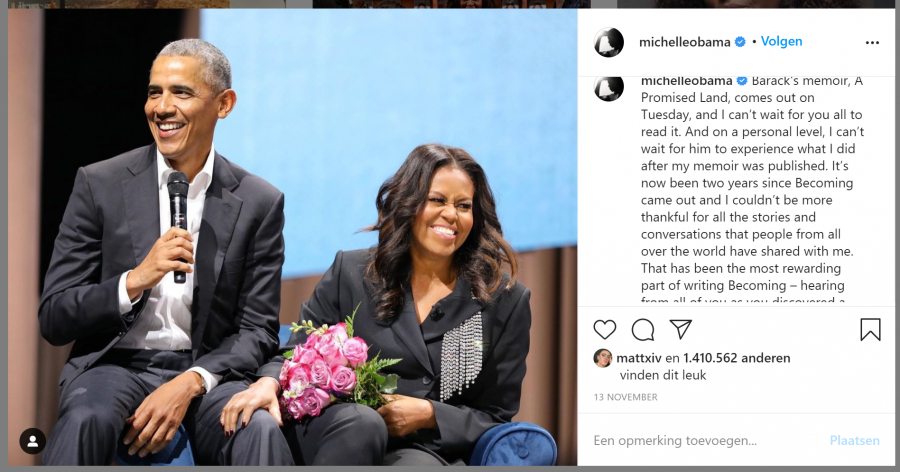
Figure 1. Michelle Obama’s empathic and emotional writing style (1/3)
Furthermore, the language Obama uses also reinforces her image. Her tone of voice can be described as emotional and empathic. In her Instagram posts, she writes long descriptions beneath the photos, in which she elaborates her thoughts in precise, sympathetic, (e.g., “I couldn’t be more thankful” Figure 1; “Thank you to all” Figure 2) and relatable (“Many of us will be experiencing Thanksgiving in a whole new way this year” Figure 3) manner to her mostly Democratic audience.
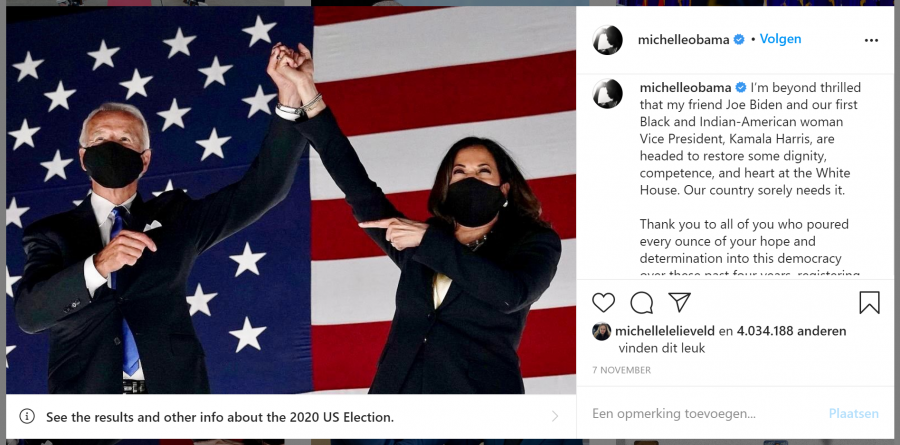
Figure 2. Michelle Obama’s empathic and emotional writing style (2/3)
Obama describes, for example, her personal feelings about the release of Barack Obama’s memoir: “ I can’t wait for him to experience what I did after my memoir was published” (Figure 1). She thanks everyone who supported the Democratic party during the 2020 presidential elections: “Thank you to all of you who poured every ounce of your hope and determination into this democracy over these past four years, registering voters, getting them to the polls, keeping folks informed” (Figure 2). Further she expresses herself sympathetically towards her followers celebrating Thanksgiving during the corona crisis: “I hope you can still find some time to tell the people in your life how much they mean to you” (Figure 3).
This emotional, sympathetic and relatable messaging style is part of a clever strategy to attract attention for both her and Barack Obama’s memoirs (Figure 1), and promote her podcast (Figure 3). However this strategy also contributes to her image as a reliable, charismatic woman, and thus to her ability to spread her political message and have a political impact.
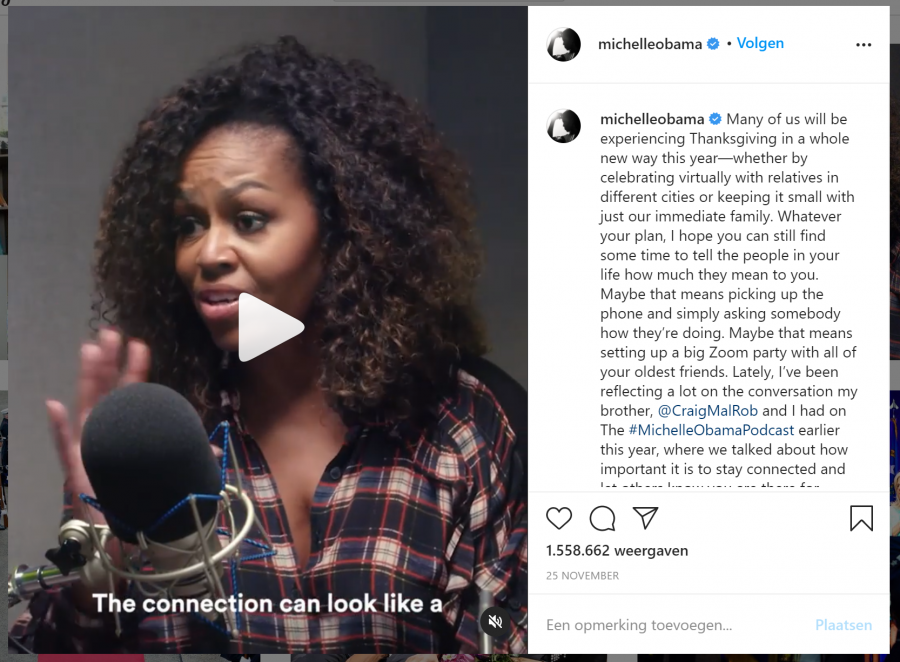
Figure 3. Michelle Obama’s empathic and emotional writing style (3/3)
The specific issues addressed by political figures also impacts their message. Michelle Obama has recently focused on (in)equality and the 2020 presidential elections. These two are connected as, at least from Obama’s perspective, equality can be striven for by voting for Democrat Joe Biden in the presidential elections. Obama actively supports organizations that strive for equality for everyone, such as the Girls Opportunity Alliance (Figure 4), an initiative founded by the Obama Foundation.
Moreover, Michelle Obama is also a member of the Voting Squad from the organization When We All Vote (Figure 5), which encourages young people from minority groups to vote. Addressing issues that are relevant and relatable for her target audience positively impacts Michelle Obama’s message and, thus, her political influence.
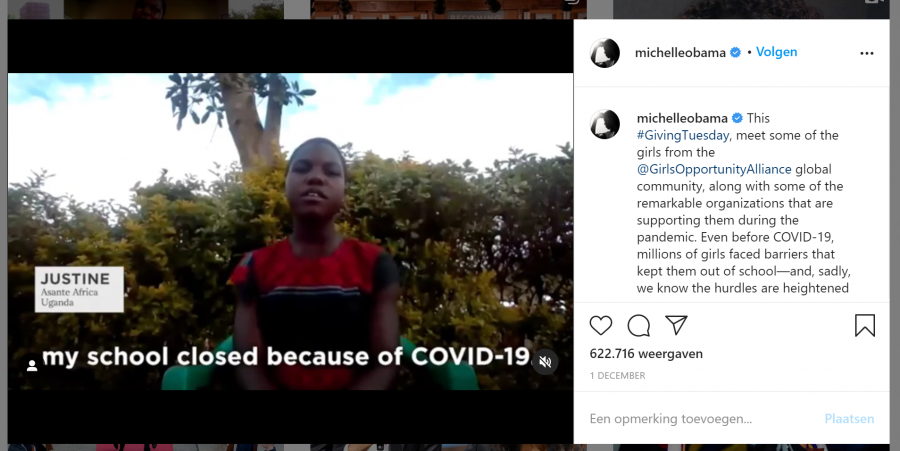
Figure 4. Michelle Obama as co-founder and ambassador of the Girls Opportunity Alliance
Furthermore, Michelle’s identity contributes to her political message. She is an African-American woman and therefore a member of a minority group in the United States. Obama uses her identity as a non-white woman to strengthen her message about equality and a democratic government. She describes herself as an everyday, ordinary American woman. On both her Instagram and Facebook page, for example, her biography states ‘girl from the South Side’ before 'former First Lady' (Figure 6).
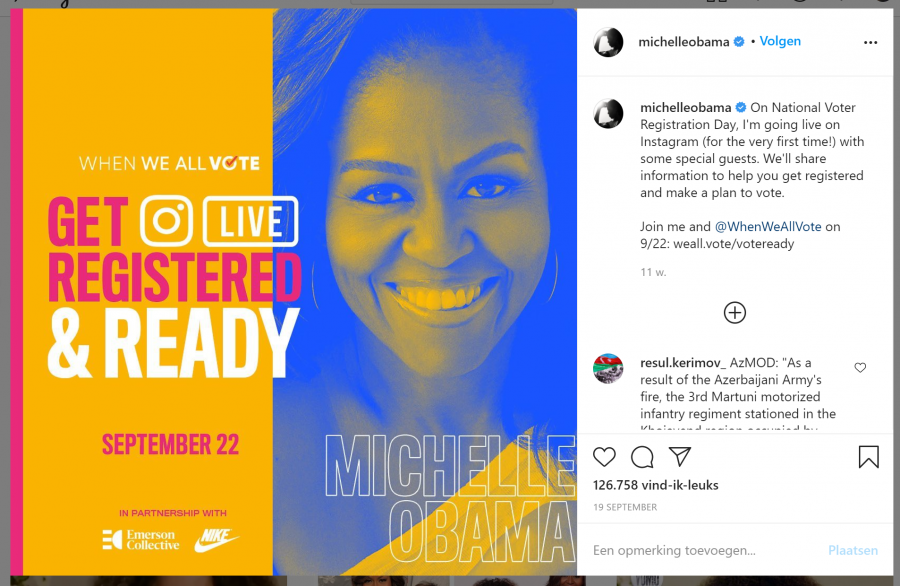
Figure 5. Organization When We All Vote informs people about the importance of voting in the 2020 elections
The way in which she presents herself as one of the people and addresses relevant issues like inequality (Figure 7 -“There is no limit to what we, as women, can accomplish when we use our voices and vote”) increases the relevance and influence of her political message for her audience. Moreover, her position as a former First Lady gives her audience a perception of expertise and reliability as a politician.

Figure 6. Instagram biography of Michelle Obama’s Instagram profile
By informing her audience about political developments and addressing relatable societal issues, Obama contributes to her political message. Further her identity as a Black woman contibutes to her ability to relate to marginalized communities. Her image as a reliable, charismatic woman, in combination with her sympathetic style of writing, make that everything Obama does in line with her message. Michelle Obama maintains her political impact, even though she is not a politician, because she always stays on-message and her political message is relatable and relevant for her audience.
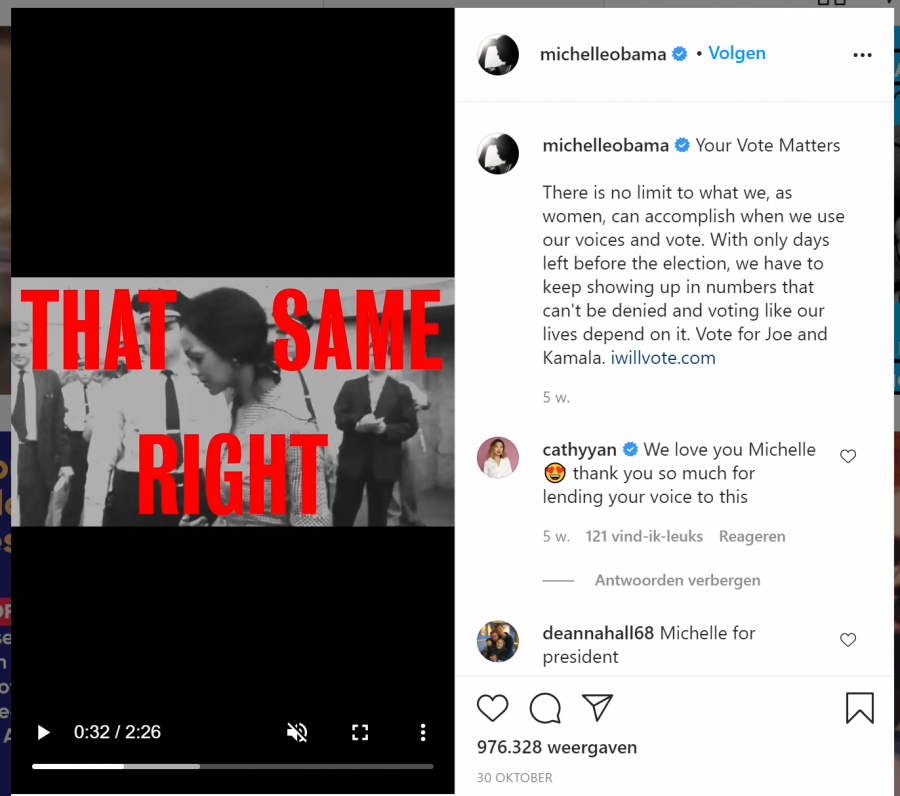
Figure 7. Michelle Obama appoints issues that present themselves in the environment of the working-class
Algorithmic knowledge in practice
Algorithmic knowledge can influence the impact of the communicated message on the audience. By taking advantage of algorithmic affordances on social media, politicians’ and politically involved people’s platforms can gain more visibility online. People with large audiences benefit even more from algorithmic knowledge. More interaction with posts means more visibility, therefore an already large platform will even more gain visibility than a small platform. Michelle Obama therefore benefits from her position as former First Lady of the United States. She already has a large audience and can therefore take greater advantage of her algorithmic knowledge in spreading her political message and promoting her book and podcasts.
An example of the incorporation of algorithmic knowledge into Obama’s political strategy is the use of hashtags. Using hashtags can influence the visibility of social media posts. If other people use the same hashtag, the posts gain even more visibility. Hashtags are embedded in the algorithmic functioning of social media platforms like Facebook and Twitter. By using the hashtags #IAmBecoming and #APromisedLand (the titles of her and Barack Obama's books), she invites people to also use these hashtags when discussing their books. She therefore gains visibility not only for her biography but also her social media profiles. Likewise, by using more common hashtags like #ivoted and #electionday, Obama increases the visibility of her social media accounts even more.
Furthermore, tagging other accounts can also increase visibility for political figures in the hybrid media system. Tagging other people annexes the tagged person's audience to one's own. This can increase interaction with a post and further spread the political message and impact (Maly, 2020). Michelle Obama tags @Joebiden, @kamalaharris, @whenweallvote, and @barackobama, among others, on her various Instagram posts.

Figure 8. Obama promotes ‘The Michelle Obama Podcast’ on her Instagram account
Similarly, Obama’s podcast ‘The Michelle Obama Podcast’ contributes to algorithmic visibility and therefore her political impact. Obama hosts conversations with other famous or interesting people, sometimes politically involved and sometimes not. When there is a new episode of her podcast online, Obama shares this on her social media accounts (Figure 8). Her guests take advantage of Michelle’s publicity and share the podcast as well. This influences both Obama’s and the guest’s visibility online because more interaction means more visibility.
Staying on-message
Michelle Obama is a non-politician who, thanks to her use of the hybrid media system's affordances, continue to have a political impact. By informing her audience about political developments, discussing societal issues, and adjusting her representation of her identity and her image to the audience, she always stays on-message. She comes across as a politically involved person who is a reliable representative of her audience. Further she uses algorithmic knowledge to her advantage through hashtags, collaborations with other politicians, and actively sharing about political issues on social media. Consequently, even though Michelle Obama is not a politician, she knows how to influence an audience to have a political impact.
References
Chadwick, A., Dennis, J., & Smith, A. P. (2016). Politics in the Age of Hybrid Media: Power, Systems, and Media Logics. In Bruns, A., Enli, G., Skogerbø, E., Larsson, A. O., & Christensen, C. (eds). (2016) The Routledge Companion to Social Media and Politics.
Lempert, M., & Silverstein, M. (2012). Creatures of politics: Media, message, and the American presidency. Indiana University Press.
Maly, I. (2020). Algorithmic populism and the datafication and gamification of the people by Flemish Interest in Belgium. Trabalhos em Linguística Aplicada, 59(1)